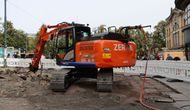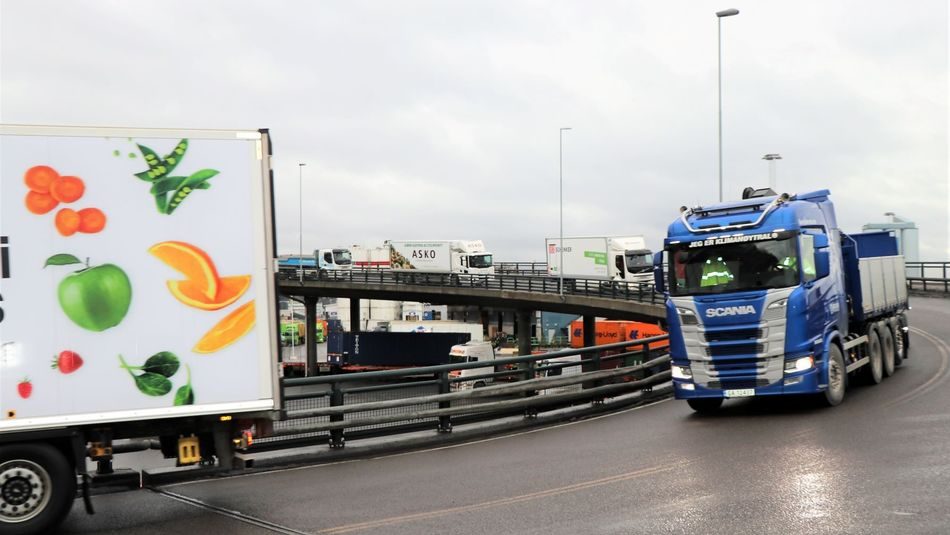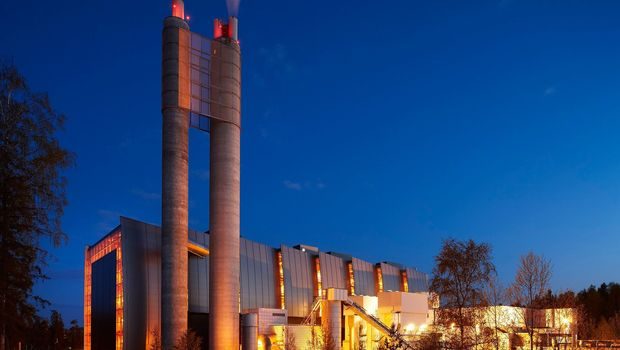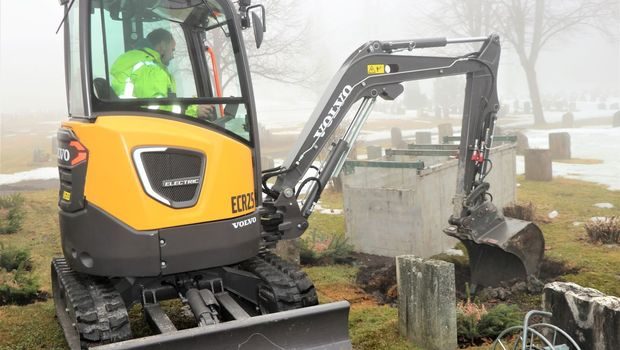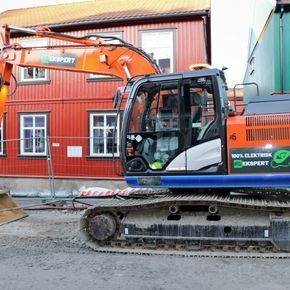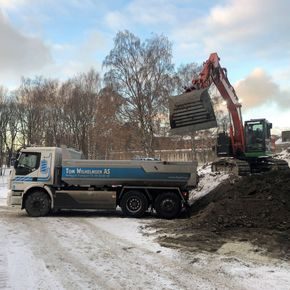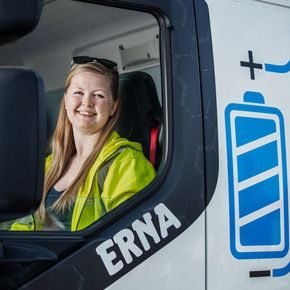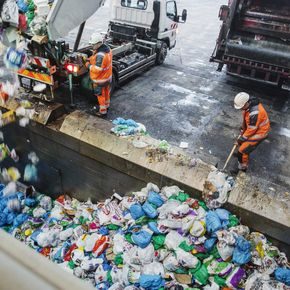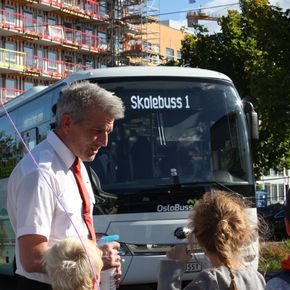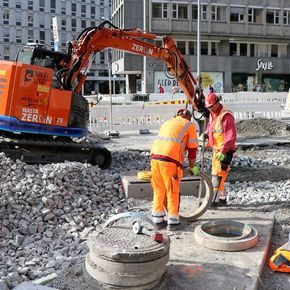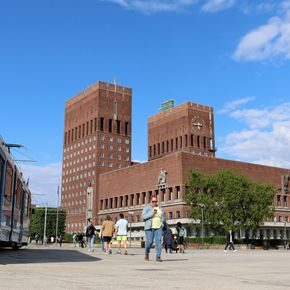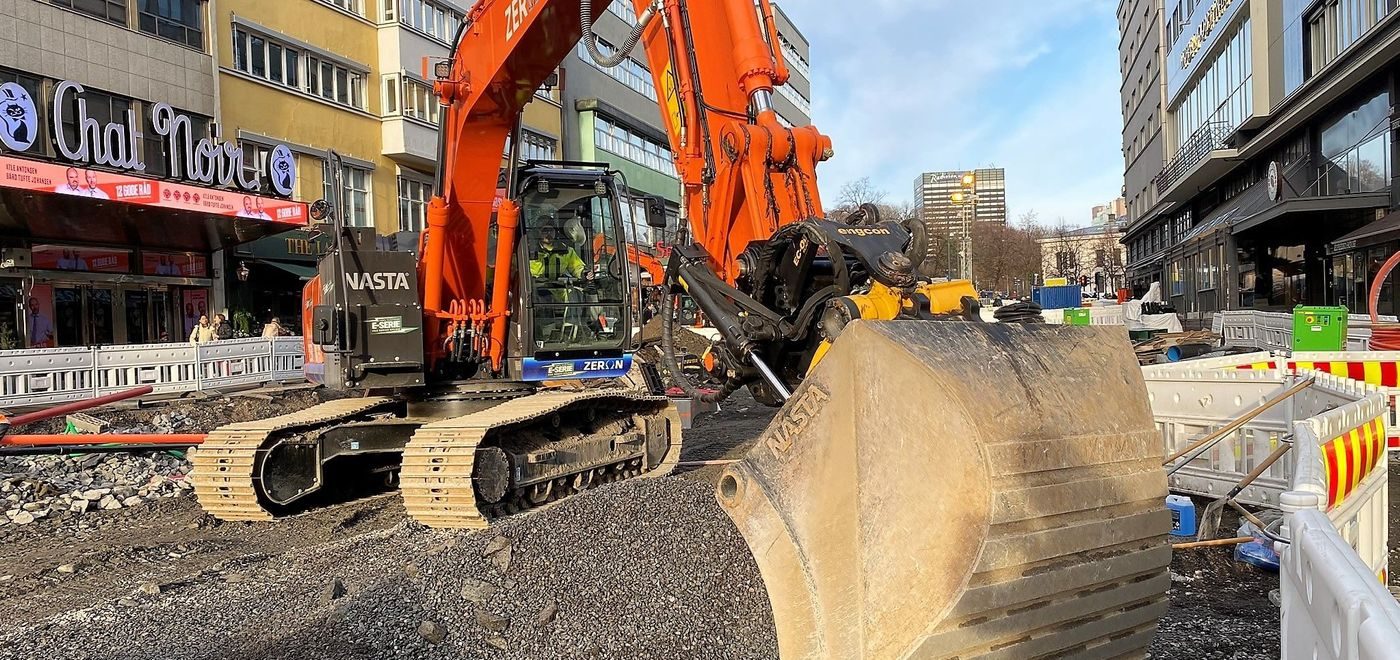
Norway expects a large increase in electric excavators in 2022
About 15 percent of all new excavators in Norway are predicted to be electric by the end of 2022, as brave companies are contributing to move the industry forward.
The construction industry contributes to large greenhouse gas emissions, both from machines and materials, while one fifth of the emissions in Oslo come from other mobile combustion, mainly from diesel engines in construction machinery. It is important to make the machines zero-emission to achieve our climate goals, and the journey has already begun.
Through tender competitions, the City of Oslo has rewarded zero-emission technologies on construction sites, using electric excavators and other zero-emission vehicles in the construction process.
And now effects are showing.
Sales of electric excavators have increased. Tone Grøstad, CEO of the machine importers organization MGF, believes that 15 percent of new sales of excavators over 10 tons in 2022 will be electric.
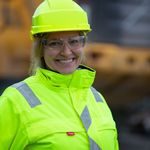
Tone Grøstad, CEO of MGF
«That is a good number. The development is happening because Norwegian companies have been bold to change from fossil excavators into electric excavators», Grøstad says.
Right now, there are about 100 electric excavators available in the Norwegian market, and Grøstad believes that approximately 250 electric excavators will be sold in 2022. This will account for 15 percent of new sales in this segment and about half of the electric excavators can be sold in the Oslo area.
The industry is coming together
Cities all over Europe recently met with the construction industry in Oslo for a conference facilitated by the European Commission’s initiative for Big Buyers for Climate and Environment. Among the participants were several major European cities such as Copenhagen, Barcelona and Berlin, as well as the Dutch Ministry of Infrastructure (Rijkwaterstaat). The goal is to find innovative solutions that cut greenhouse gas emissions, local air pollution and reduce noise from construction sites in cities.
«It is important that cities all over Europe follow Oslo’s example to buy electric excavators from the manufacturer instead of rebuilding. Our collective demand for electric excavators will send a clear message to the large companies producing them», Grøstad says.
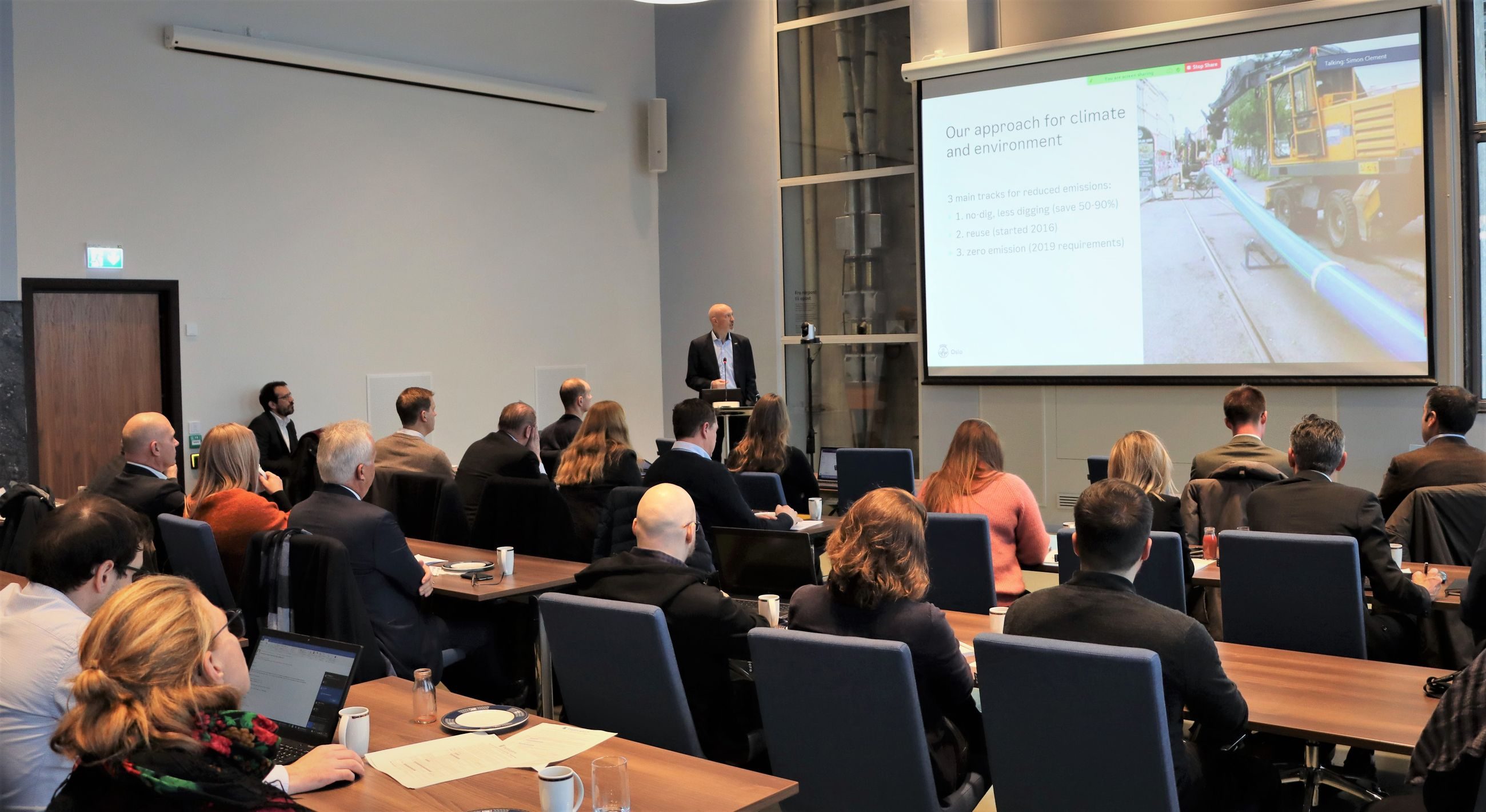
Oslo participates in the European Big Buyers network, which was recently gathered in Oslo City Hall.
Fossil excavators are converted into electric excavators after they have been built as fossil machines, which means that diesel engines and tanks are removed and replaced with electric motors and batteries.
Increasing demand in Norway
According to Grøstad, the Norwegian development of electric excavators would not have been possible without support from Enova, and that large public developers have paid extra to get zero-emission solutions on the construction site, Grøstad believes.
«We need more countries to be just as brave and that the electric excavators come from the manufacturer and are not rebuilt.»
Grøstad is aware of the obstacles that the industry is experiencing today. One thing is access to machines, the other is power planning. Access to electricity is easy to find in the cities and suburban areas, while access in rural areas can be more challenging. Grøstad uses Lofoten as an example.
«If we are going to build a new road here, we must have a plan for energy supply to prepare for future transport. To do that we need to plan for supply of electricity and charging stations, but who will pay for it?»
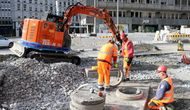
The climate budget ensures reduced emissions from traffic, construction and waste incineration
Demand drives development of electric excavators
The Big Buyers Initiative is important to make change happen. Oslo municipality has been a driving force as a public client and has rewarded suppliers who offer zero-emission construction machinery and trucks through tender rounds. André Aasrud, senior adviser in Oslo municipality, can already see the effects.

André Aasrud is a senior adviser to the Climate Agency in Oslo municipality.
«Our demands have led to a significant development of electric excavators in the market. Now we need more cities to follow the same path. That is why this conference is so important.»
Aasrud stresses the importance of getting other cities involved, because a larger market helps to reduce the cost of construction machinery.
The excavators used today are largely prototypes that are expensive to produce. A conference like this, facilitated by the EU’s Big Buyers Initiative, can help create a larger market, having builders demand zero-emission machines.
The industry and the cities were gathered in Oslo to discuss solutions. Vann- og avløpsetaten (The Water and Sewerage Authority) presented the zero-emission construction project at Klosterenga. The cities met a wide range of suppliers from home and abroad for market dialogue in Oslo City Hall. Representatives from the Committee for European Construction Equipment (CECE) and contractors (FIEC) were among the speakers.
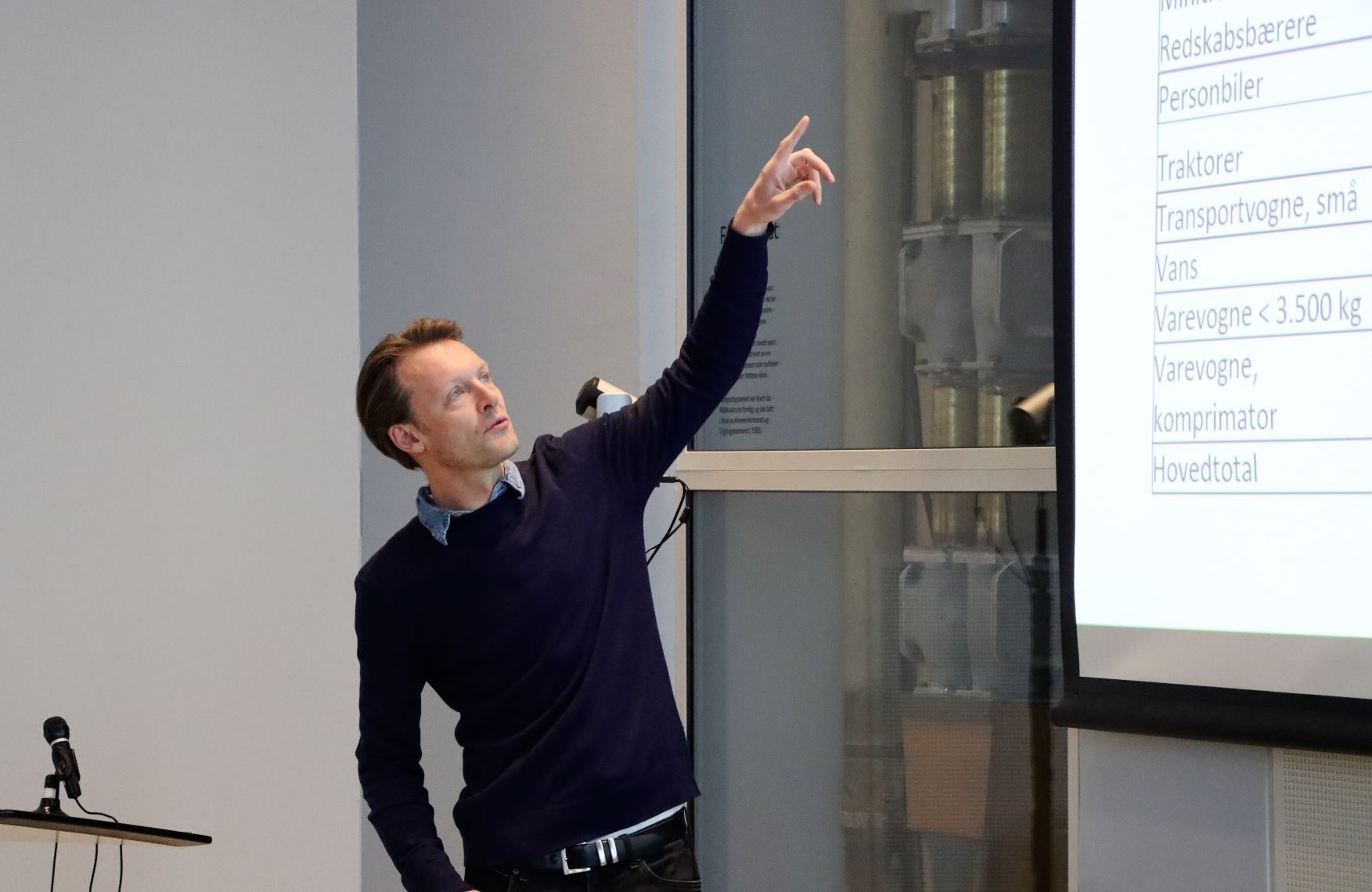
Claus Wilhelmsen from Copenhagen Municipality told the participants at the Big Buyers gathering how they work to make the municipality’s machine park emission-free.
«The market in Oslo and Norway is not large enough for the large manufacturers of construction machinery to reorganize and begin series production of electrical construction machinery. A larger market is needed, and then we are dependent on more cities following. We hope this conference contributed to that», Aasrud says.
He participated on behalf of the C40 Clean Construction Program, which today counts 40 of the world’s largest cities.
